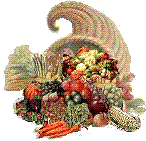
|
|
|
|
Sal 04/28/10 |
I am very pleased and appreciate your efforts and research to highlight the kashmiri tea.I have been living outside kashmir for the last 12 years but not a single day passes without me having my morning cup of my fav NOONChai(sheerchai) In fact my store of the tea is on the brim of extinction, and in my search for availability of the tea leaves in uk I came across your article, and I absolutely appeciate all your efforts. I actually come from the heart of kashmir, where the traditions are maintained at least in terms of dietary habits. However I am sorry to mention that although the recipie for Kahwa is fairly authentic, except for the fact that neither cinnamon nor cardamoms are used as powder they have to be whole ( bruised for cardamom)otherwise you dont get the traditional taste. However the recipe for Salt tea's( more commonly called noonchai- noon means salt in kashmiri)although right in spirit is horribly wrong in ingredients and a little bit detail bout milk is wrong as well. Firstly apart from tea leaves and bicarb and salt and milk, the only other components of such tea are butter and almonds(skinned after soaking in water), There is Absolutely No Use of cardamom , cinnamom etc , trust me NO KASHMIRI WILL DRINK THAT TEA ( sorry for the caps lock). Also to mention that the tea is boiled to almost dry and you have to reapeat the cycle a couple of times i.e once the tea leaves and bicarb have almost boiled dry ,you jus add water to it and repeat the boiling cycle , the final product is the concentrate called "TUETH". Now here comes the other error you have made. once you have to make the final product(NOONChai) a small quantity of the "Tueth" is taken and diluted upto 10 times its volume with Water depending on how strong you want it to taste(not milk to dilute the concentrate)and after that you do the aereation (Khaal Waal), then you add salt and milk , may be butter and almond especially for special occasions and then you simmer it (simmering is best done is Samovar though not many people use it in modern times except on special functions) and it tastes best after an hour or so of simmering.Also to point out an important thing the tea is never strained so as to take out its leaves( Chai-Kosh), they are important for adding taste during simmering.
I do aplogize if I have in anyway hurt your feelings, but being a kashmiri to the marrow, it is my duty to mention facts about my native cushine. Please feel free to drop a note via my email. but I congratulate you for putting in your effots and time for bringing the kashmiri tea for the world to enjoy, also let me tell you a secret noonchai, not everyone can drink it you need to develop a taste for it. Take care and cheers |
|
ellen 08/17/11 |
Thanks for the information, as you may know, that there are sometimes variations in the "one true recipe". You method sounds very practical and tasty, and yes, it requires a little getting used to for folks that have not had it before. |
